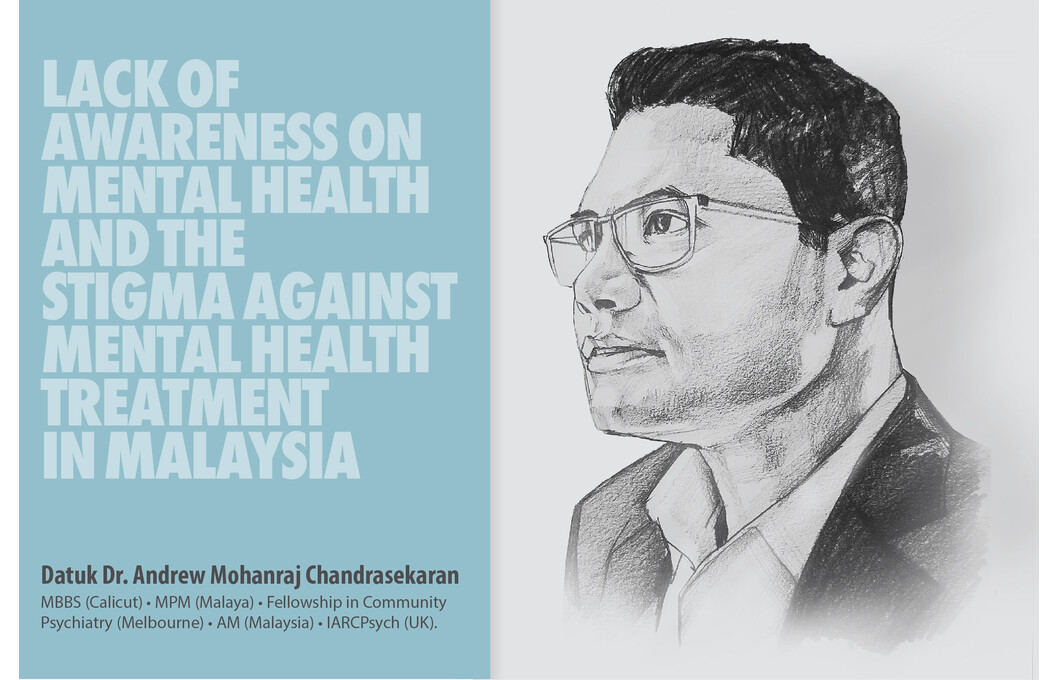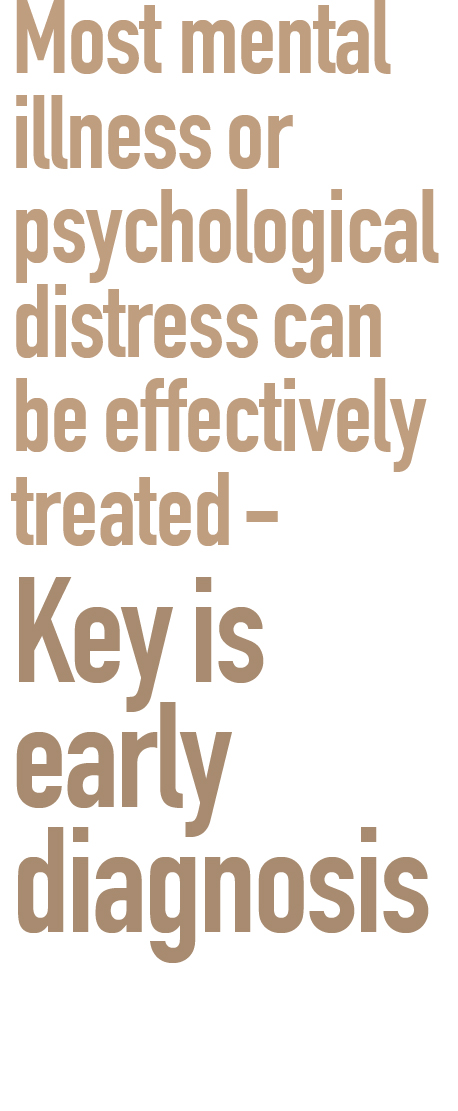A Man of Our Times

Datuk Dr Andrew Mohanraj Chandrasekaran, Commonwealth Scholarship holder to study Medicine at Calicut Government Medical College India, Scholarship by the Royal Australian and New Zealand College of Psychiatrists to pursue a Fellowship in Community Mental Health at the University of Melbourne, President of the Malaysian Mental Health Association and Board Member, World Federation for Mental Health – and a man of our times.
He pioneered sustainable psychosocial rehabilitation and community mental health services in Acheh after seeing the devastation on human life and its aftermath by the 2004 tsunami. He was there as a volunteer with the International Medical Corps. On no pay leave from his post at Hospital Kuala Lumpur, Dr Andrew Mohanraj just couldn’t walk away to return to the comforts of Malaysia after one and a half years of helping post trauma recovery of the victims at Acheh. The people of Acheh were still struggling to come to terms with life and society in the midst of the wreckage and so he tendered his resignation and served in Acheh for several more years before pursuing his Fellowship in Community Mental Health at the University of Melbourne, Australia.
But he eventually came home to Malaysia. Datuk Dr Andrew Mohanraj is a Disaster Psychiatrist. He specialises in the branch of Mental Health care which provides psychiatric services to disaster victims and rescue workers. But he is also very much involved in other aspects of mental health care in Malaysia in private practice and as the President of the Malaysian Mental Health Association (MMHA). MMHA was formed in 1967 by some staff members from University Malaya Medical Centre (formerly University Hospital) and the persons behind the MMHA comprise psychiatrists, psychologists, medical social workers, nurses and occupational therapists involved in the management of people with mental health disorders. Today its members come from all walks of life.
The MMHA is very concerned about the lack of awareness on mental health and the stigma against mental health treatment in Malaysia by the general community. According to MMHA, Malaysia does not have adequate holistic mental health care services to deal with the increasing number of people with mental health concerns especially among the young. There is also the shortage of mental health experts in the country. Malaysians fear being labeled “gila” or “mad” or “tiga suku” and so the number of people here who suffer from different degrees of mental health problems is not known. But Dr Andrew Mohanraj said that the number of Malaysians suffering from some form of psychological distress is significant though many might not realise they were facing such problems. He emphasized the importance of treating all mental health problems at an early stage and the danger of leaving such problems untreated, both for the individual and society at large. Those with schizophrenia, if untreated, may suffer from psychosis-like delusions and hallucinations that might make them homicidal or suicidal.
Leading normal lives
Malaysians must realise that most mental illness or psychological distress can be effectively treated and are often situational, and that only a small percentage of mental illness could be long term and debilitating according to Dr Andrew Mohanraj. The key is early diagnosis to prevent the escalation of the mental health issues faced.
We hope that Dr Andrew Mohanraj will lead the MMHA to new heights of achievement in helping to create a holistic mental health care system in Malaysia.





